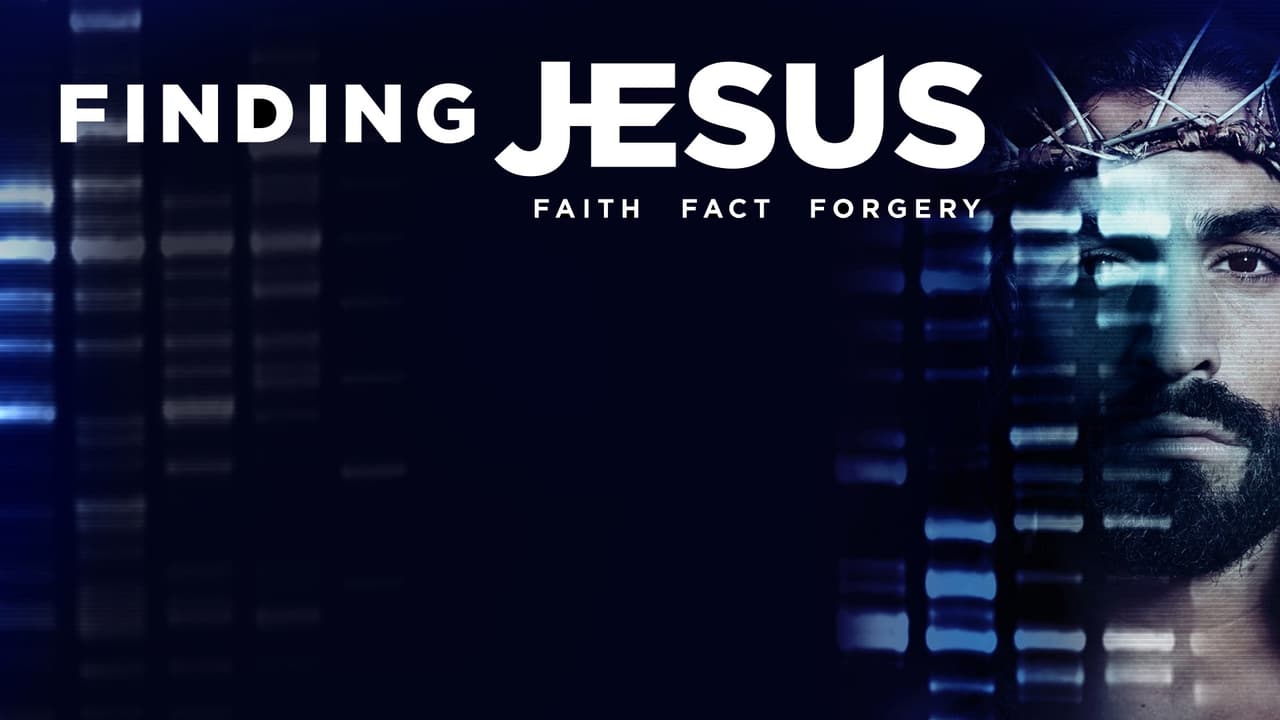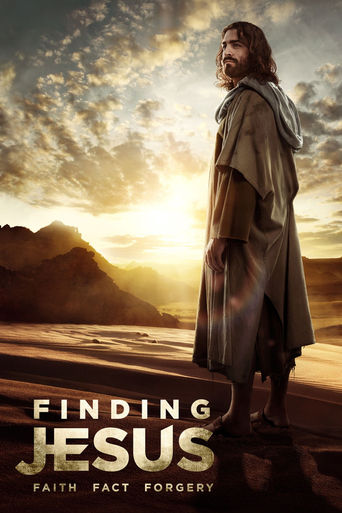



Don't Believe the Hype
A different way of telling a story
Through painfully honest and emotional moments, the movie becomes irresistibly relatable
View MoreThe movie's not perfect, but it sticks the landing of its message. It was engaging - thrilling at times - and I personally thought it was a great time.
View MoreVery many books have written about Socrates, Hannibal and Xerxes. But Nobody questions the accuracy of the existence of such a men..and believe me if you really wanted to start looking for "inconcistencies " in the record of such men you will find them just like excavating the Bible does. However when it comes to Jesus the liberal media is obsessed with discrediting the facts. This CNN series is yet another pretense by the Iranian pseudo scholar Reza Aslan at establishing the truth about Jesus yet cleverly trying to cast doubt on Christianity while saying nothing about the barbarism of Islam. CNN uses basic tricks amateur scholars engage in by selectively quoting texts and relying on one sided interpretations to sow doubt in the mind of the audience whom I am sure have never taken time to read and understand the Bible. OK if one wants to question Jesus deity and claims I am willing to accept that. But to question his existence is a fools errand since, doing that negates other historical events that occurred at the same period . Not to mention the 66 books of the Old testament that precedes and establishes the work of Jesus. in sum believers will not be swayed by this documentary and non-believers will continue in their ignorance of the true facts that can only be distilled by a personal reading of a good translation of the Bible like the Recovery Version.
View MoreThis may not seem significant to some, but I thought it was generally understood that when you're trying to find, locate someone, knowing their correct Name is pretty important! The savior, the redeemer was a born Hebrew of the lineage of David, who stemmed from the kingship tribe. His name COULD NOT HAVE BEEN Jesus. How can I make such a statement when millions of people worldwide believe in him? Well, quite simply the fact of the matter is that there has NEVER been a character(letter) in the Hebrew alphabet the would produce the letter J or the J sound! Don't take my word for it, check it out. And just possibly, if you don't know some one's correct name, there's a strong possibility that everything else you thought you knew about that individual is also wrong!
View MoreThis was a well-produced, six-part documentary film series that aired on CNN. There is also a lively and well-written book the accompanies the series, written by David Gibson and Michael McKinley. The book adds many details to the individual programs.The approach to studying the life of Jesus in this series is to focus on artifacts that have recently been examined through the uses of modern forensic science. Priceless relics, such as a piece of the True Cross, are subjected to carbon-14 dating. And the papyrus and ink of the controversial Gospel of Judas are carefully tested for authenticity. The Shroud of Turin has even been tested for traces of pollen that may be unique to the region of the Levant at the time of Jesus.The most engaging of all the programs in the one on Judas. When this astonishing text was first revealed to the public by the National Geographic Society early in the twenty-first century, there appeared to be a completely new interpretation of Judas as a disciple who was carrying out Jesus' instructions for betrayal. But there were apparently significant errors in translation, resulting in confusion and misinterpretation. Based on this program, it now appears Judas was just as much a traitor as he has traditionally been portrayed, now borne out even more completely in the Gospel of Judas. The other programs address John the Baptist, Mary Magdalene, the True Cross, James, and the Shroud of Turin.If there is an overarching theme to the series, it is the longstanding veneration of relics in Christianity. A point that is downplayed by the filmmakers is how the authenticity of relics is really not important to a true believer. The authors of the book version of "Finding Jesus" recognize this point when quoting Pope Francis, who recently said of the Shroud of Turin that the "unique and supreme World of God comes to us through" the relic. Whether the relic actually dates from the time of Jesus is a moot point, due to the metaphorical power of the venerated object.
View MoreThis series was disappointing. The promotion indicated there would be an examination of New Testament relics. Quite possibly, viewers would be offered some evidence Jesus Christ really existed. Believers, who need no proof, could be happily proved correct. Non-believers could accept the fact that there was a man named Jesus Christ, at least. The music, by Tom Howe, is hauntingly Biblical. Adam Bond and the cast perform well. A few of the narratives, like "Judas" and "Helena" episodes, play nicely. However, nothing is proved and much of the series is nonsense. "Finding Jesus: Faith Fact Forgery" is mostly a dramatization of New Testament events.Episode 1 considers "The Shroud of Turin" - Many Christians believe this cloth wrapped the crucified body of Jesus Christ. The unusual photographic "image" caught on the shroud is said to be evidence of Christ's resurrection. "Radiation" is the word one expert uses, in this episode. Another garment is discussed toward the end of the hour, a scarf used to wrap Jesus Christ's head. The title "Finding Jesus: Faith, Fact, Forgery" may suggest an informed investigation of the "Shroud of Turin". You won't find that here. On balance, the authenticity of the shroud is safe and sound on CNN. They cover some of the testing, but don't consider much of the origin and history. The New Testament is considered factual. If the shroud fits, wear it.Episode 2 considers "The Bones of John the Baptist" - We mainly have another New Testament dramatization. The main point is the series' examination of, what they call, "a possible blood link between John and Jesus." Around the world, there are many bones purportedly to be "The Bones of John the Baptist." Some are fakes, obviously, since there are enough bones to make up more than one man. One set is carbon dated to be from the correct time period and belongs to a "middle-eastern man." The only other evidence is that the bones are claimed to be John's. Unfortunately, CNN provides no blood sample from Jesus, so it is impossible to prove the "link" proposed. Intriguing story, but inconclusive.Episode 3 considers "The Lost Gospel of Judas" - It "casts a different light" on the betrayer's "despicable act." Since Jesus was divinely slated for crucifixion, someone had to help set the events in motion. For the first time, there appears to be some scientific agreement on the relic being discussed. It was discovered in 1978 and finally determined to be written much later than the other Christian gospels. Unfortunately, the intriguing new ideas in the document are passed over and it is dismissed as early criticism of Christianity. While it doesn't conclude that Judas should be seen in a more positive light, the idea makes sense and makes this episode one of the most thought-provoking of the short series.Episode 4 considers "The Secret Brother of Jesus" - The discovery of a bone-filled casket is possibly a blood link to Jesus Christ. We're told Mary was a virgin both before and after Jesus' birth, so Jesus and other siblings were fathered by Joseph with other women. Now, if Jesus is the son of Mary (Virgin Mother) and God (Holy Father) and James is the son of Joseph (father) and another woman (unknown mother), there is no DNA link between Jesus and James. So, testing the bones from the casket makes no sense. First of all, we're told they didn't result from the same father and mother. Also, there is no reliable blood sample from Jesus Christ, to check for a match.Episode 5 considers "The True Cross" - Helena, mother of the first Christian emperor Constantine, is the main person responsible for preserving the cross. Also a believer in Christ, she sought out the cross upon which he was crucified. The cross was eventually broken into fragments, which is how it survives, presently. One piece of the cross was given by Pope Paschal II to the King of Ireland in the 12th century. Since the Pope had this fragment, we assume it to be authentic, but this particular relic did not pass carbon dating. The assumption is that the "True Cross" is out there, but the promised answer isn't here.Episode 6 considers "The Gospel of Mary Magdalene" - Most of the episode's running time reviews the life of Mary Magdalene, although the series narrator admits there is little known about the woman. Speculation about Mary being a prostitute is called a myth. While seeming to dismiss the "fallen woman" angle, the episode further speculates that Mary Magdalene was the wife of Jesus Christ. Not much is determined. We know she is the first to see Jesus, after he rises from the dead. We learn about the lost gospels. They seem to suggest Mary was a feminist, relative to the time, and in opposition to the disciple Peter. Most women were found in domestic settings.The series ended with its weakest episode, due to having the least interesting "relic" to review. A better idea would be to combine the "Lost Gospels" as one "relics" episode. The final installment should have offered a summary and conclusion, considering all the relics. With the series now over, we've left wondering what the "fact, faith, forgery" subtitle concluded. There is no clear determination given for which relics are factual, which are based on faith and which are forgeries. Instead, it's all a blur. Generally, the New Testament is presented as fact and the series doesn't prove the relics examined are an authentically divine collection.**** Finding Jesus: Faith Fact Forgery (3/1/15-4/5/15) Nick Green, Hugh Ballantyne, Gary Johnstone ~ Adam Bond
View More